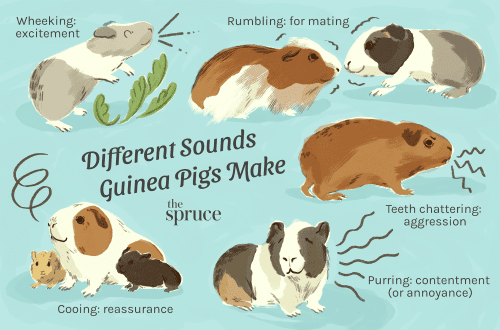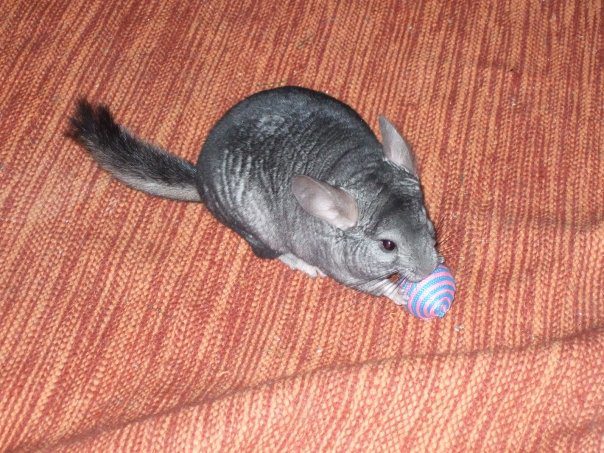
Should I get a chinchilla: the pros and cons of a pet in an apartment
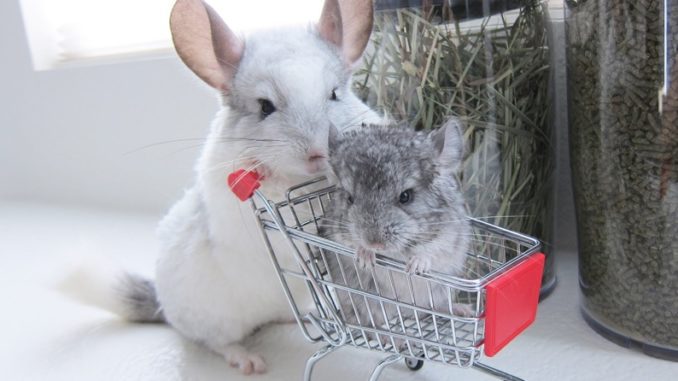
The chinchilla is a rodent known for its beautiful, thick fur and good-natured disposition. In nature, it is distributed in the rocky regions of South America, where it leads a colonial lifestyle. As a pet, she lived in the houses of the ancient Incas. Despite the fact that this rodent is harmless and meek, it is worth weighing the pros and cons of having a chinchilla in the house before purchasing.
Contents
Maintenance and care
Rodent walks in the fresh air are not needed and even dangerous. At home, he feels free if he lives in a spacious cage. A dwelling less than a meter wide for a pet will be too cramped. Even a large cage cannot satisfy the need for movement and exploration of new territories, so regular walks on the floor are required.. They can only pass under supervision, otherwise the animal is capable of causing serious damage to the environment and its health.
Chinchilla is sensitive to the microclimate of the apartment. It must be protected from drafts. Optimum content at a temperature in the range of 18-22 degrees. The relative humidity of the air should not exceed 65%, the mode closest to natural conditions is about 40%.
These rodents are neat, so you can start a chinchilla in the apartment. They take care of their own hygiene and always keep the wool clean. The pet does not emit pungent odors and does not need water procedures.
In order for a neat animal to feel comfortable, you need to clean the cage at least once a week and provide him with stable access to a tray with fine sand. As bedding, it is better to use sawdust from deciduous trees, or corn filler. Hay is used as food for them, therefore it is not suitable for spreading in a cage.
Chinchilla is a herbivore. In nature, it feeds on cereals, shrub bark, mosses and lichens. The animals eat a little, but they love variety. For them, you need to take special granulated food, hay and ensure the presence of twigs in the cage.
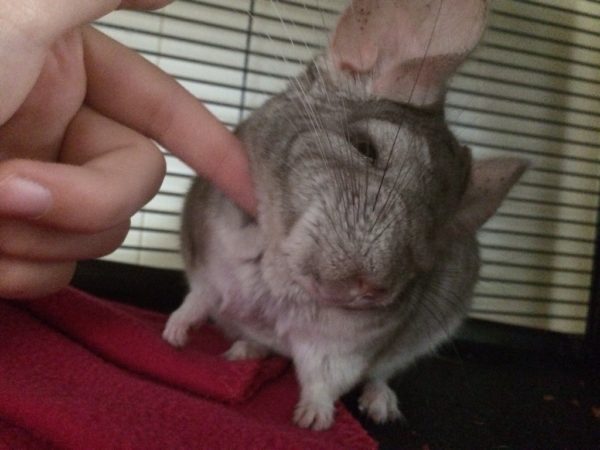
Do chinchillas make noise at night?
Chinchillas are active at night. The animals have a cheerful, playful disposition. They are mobile and very active, so they create a lot of noise. The pet jumps, climbs on the bars, moves bowls and trays, rustles and knocks. Not everyone will be able to sleep in the same room with an enacted rodent. With age, mobility decreases, adults behave more calmly. Ringing and rattling games are replaced by crackling from nibbling twigs and the rustle of filler.
Often, a chinchilla makes a purposeful noise to get the owner’s attention, or to ask for a walk.
Breeders recommend equipping special showcases for pets instead of cages. Experienced owners try to organize an active walk for the animal before going to bed. Special measures can reduce the noise level, but cannot completely eliminate the disadvantage. You should not buy a chinchilla if the night wakefulness of the pet is unacceptable for family members.
Why are chinchillas dangerous?
Chinchilla is not prone to aggression and bites are extremely rare. If the animal is not comfortable, before fighting back, he will warn of his displeasure with a painless pinching of his teeth.
Most of the negative aspects from the reviews of the owners boil down to stories about how an inquisitive pet tastes absolutely everything that it finds in the apartment. He gnaws on furniture, tears up wallpaper, and has a keen interest in wires.
Keeping a chinchilla in unfavorable conditions can lead to diseases.
Relative humidity above 70% promotes the development of fungal infections on the animal’s skin. Dermatomycosis is also transmitted to people. Chinchillas, with proper care, are no more susceptible to disease than other animals. The problem is that among veterinarians there are few who understand the characteristics of the species. Therefore, treating a chinchilla is often expensive and troublesome.
The chinchilla has no seasonal molt, wool falls in minimal quantities all year round. These rodents are less likely to become allergy catalysts, but incidents are possible.
Chinchillas and children
With all the advantages, having a rodent in a house where there are children is a controversial decision. Chinchilla is categorically not suitable for a child under five years old. Loud noise and active play of the baby can frighten the animal, or lead to injury. In the daytime, the animal sleeps more, the peak of its activity occurs at night. It is important to pay attention to the gender of the chinchilla, the girls are more active and nimble, therefore I tend to be less fond of hands. A nursery will help you choose a calm and less shy animal for a child, where the cost of a chinchilla will be much higher than in a pet store.
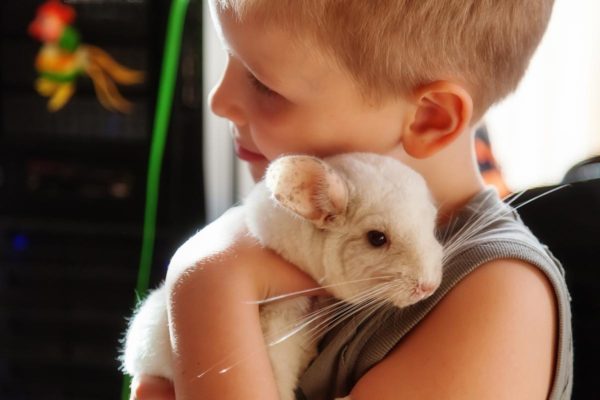
A chinchilla can be given to a child if he:
- prefers quiet games;
- well coordinated movements and able to be careful;
- ready to respect the personal space of the pet.
The main reason for doubt is the independent nature of the rodent. Even tame individuals do not like long hugs when they are carried and squeezed. The child’s role in this friendship comes down mainly to care and contemplation. The nimble animal will allow you to scratch yourself behind the ear, take a treat from your hand, but will play with the child only when he wants to.
Pros and cons of chinchillas in the house
Before purchasing, it is worth analyzing the pros and cons. Chinchilla is an ideal choice for those who prefer to watch animals and are often awake at night.
Pros of chinchillas:
- the life expectancy of chinchillas is above 10 years;
- cheerful and playful disposition, it is interesting to watch them;
- cleanliness and lack of smell;
- the animal does not bite and does not scratch;
- malleability to taming and learning;
- adaptability to housing conditions;
- no need to walk on the street;
- can get along with the cat.
Chinchilla care is simple, but to ensure its health and comfort, all residents will have to reckon with the biological characteristics of the species.
Cons of chinchillas:
- the need for a spacious cage;
- curiosity and the desire to try everything on the tooth;
- nocturnal and noisy behavior;
- shortage of veterinarians;
- sensitivity to temperature and humidity;
- does not like to sit on his hands for a long time and excessive caresses.
It is easy to make friends with a fluffy rodent, he is sociable and will thank you for tactful attention with sincere sympathy. Subject to the rules for care, the animal will please the owner for a long time with its optimism and mobility.
Get a chinchilla: all the pros and cons
3.3 (66.15%) 39 votes







